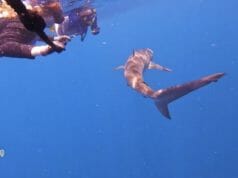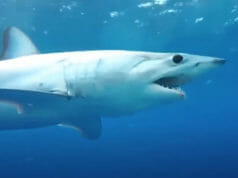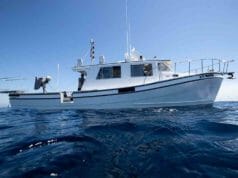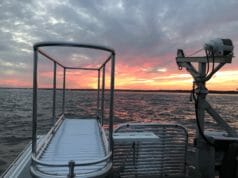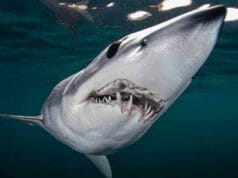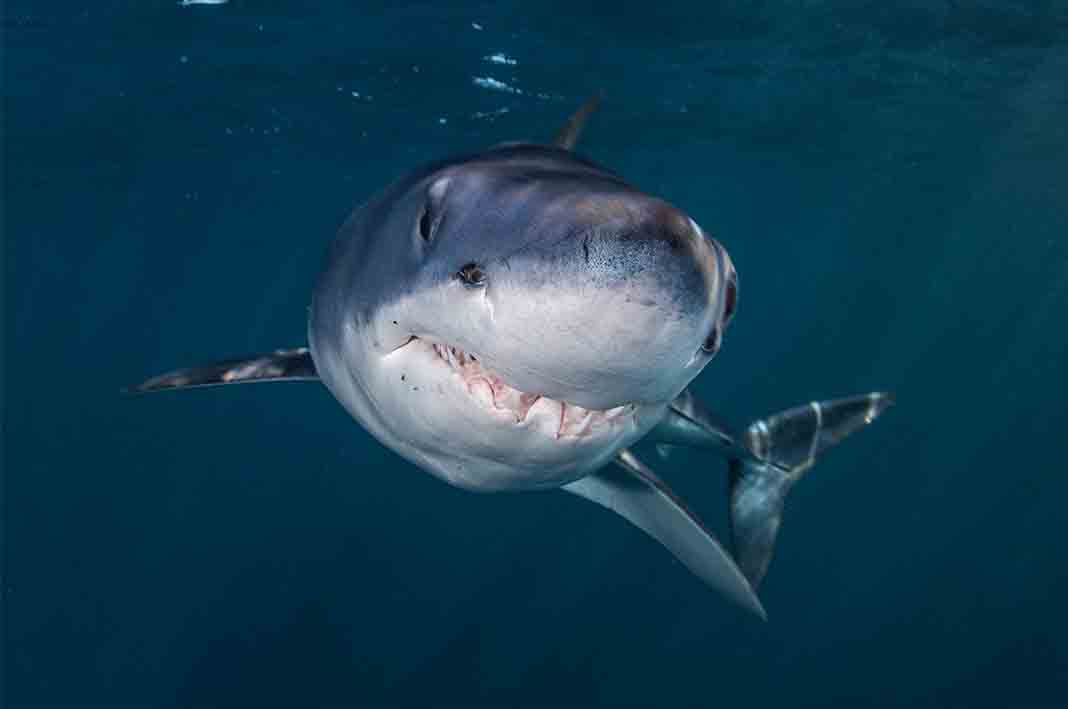
Atlantic Shark Institute is on the brink of making groundbreaking discoveries out on the water. They have the team, the boat and the passion – not just for saving animals, but for sharing their stories.
”Their strength, movements and interactions make them beautiful animals.” Rhode Island Shark Diving’s marine biologist Lauren Benoit said.
Usually research is done by killing sharks and dissecting their bodies, but Atlantic Shark Institute is all about protecting sharks while learning about their behavior. They are hoping to change the perspective on sharks and get people in the Ocean State talking about their conservation.
“We have so many shark species that travel through here, migrate and stay here,” Atlantic Shark Institute Executive Director Joe Romeiro said. “We can be one of the first people in New England to announce that before great whites landed in Massachusetts, they migrated through here. We can answer how they used the landscape.”
Romeiro hopes discussion about great whites can then be redirected to all of the other shark species who share the water, including the mako, which is now endangered, and the blue, which is near threatened.
“They may not exist anymore, and we can help bring the attention to them too,” Romeiro said. “There’s not a lot known about blues and makos, and they are two of the most exploited shark species on the planet.”
Romeiro, Benoit and Atlantic Shark Institute Chairman Jon F. Dodd are three people who have seen sharks from a different angle for years. They interact with sharks by swimming alongside them, studying their movements and helping scientists along with their unique studies.
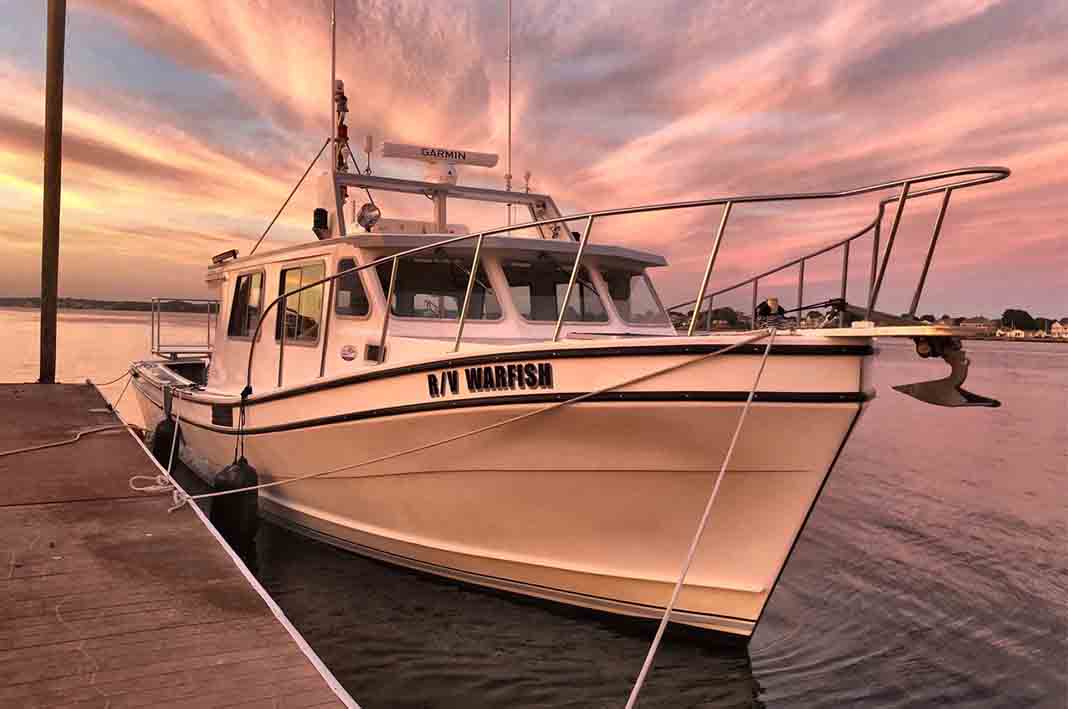
By collaborating with scientists and supporting shark studies aboard a massive 45ft research vessel, Atlantic Shark Institute is on the forefront of new discoveries.
“The Atlantic Shark Institute has generously donated boat time, bait, and the input of its Research Advisory Council to enable my study,” said Joshua Moyer, PhD candidate at the University of Massachusetts.
Moyer is leading the study on mako and blue sharks, a project which focuses on the ecological morphology and bite performance of various species of sharks.
“They are putting me in contact with these sharks as part of a responsible, good faith attempt to provide researchers with the tools they need to answer questions that can only be answered by close, careful observation of these animals,” Moyer explained.
“No matter how many times you see one or what size it is they will amaze you every time,” Benoit said. “Their speed and interactions with us are always amazing to encounter.”
“Mako and blue sharks are two interesting species for a variety of reasons,” Moyer said. “Both of them live in the open ocean, which can be a tough place to make a living.”
By sharing the same environment, makos and blues are subject to the same selective pressures that drive natural selection.
“It makes sense that you’d see some striking similarities. This is called convergent evolution,” Moyer said. “However, they belong to two different orders, or groups, of sharks, each with unique evolutionary histories, and there are some striking differences too.”
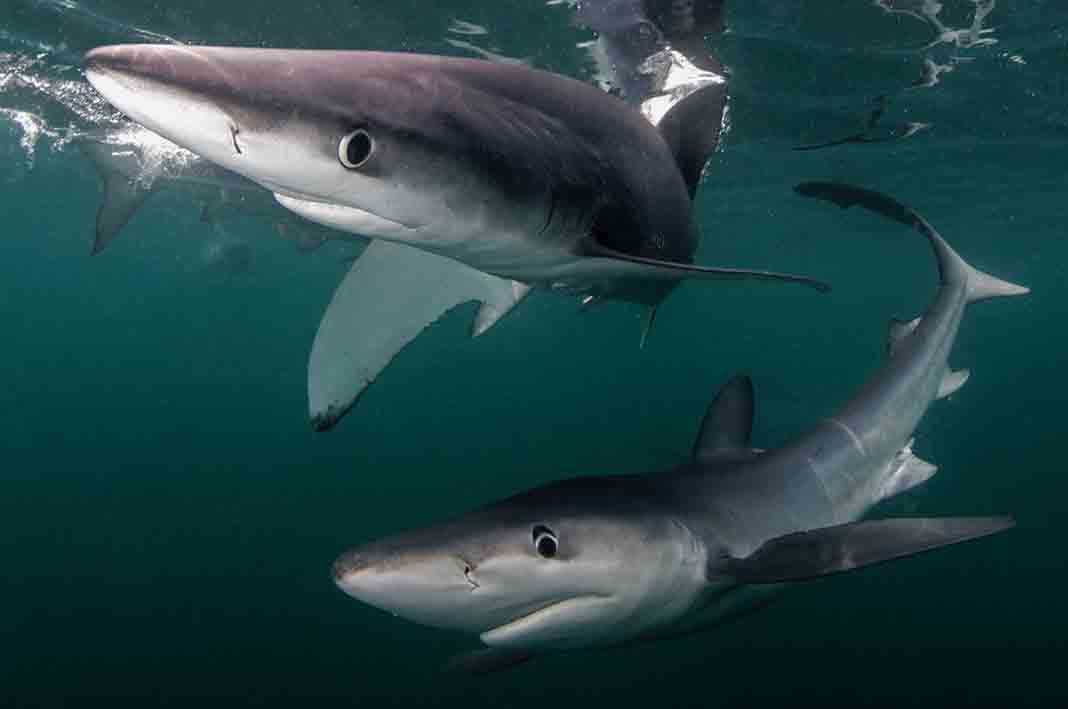
Moyer has had a passion for biology and sharks since he was four-years-old. So much so, that his childhood nickname was “Sharkboy.” He hopes that his research helps to document variations in feeding performance to see how blues and makos compare to other sharks with similar and different ecologies.
“This may give us insight into convergent evolution of sharks in the open ocean,” Moyer said.
The mako and blue shark study aims to not only share scientific information about these two species of shark, but also question how leaving hooks in their mouths can impact their state of being.
“You’ll see a shark come up and lightly touch something and figure out what it is, and bite onto it in a feeding behavior,” Romeiro said. “We’re trying to show that if you leave hooks in their mouths, they are not functioning the same.”
“Many sharks take a while to mature and have little young,” Benoit said. “When they are heavily fished commercially and recreationally, it takes a huge toll on their populations.”
Moyer explained that when an organism is listed as endangered, it doesn’t change the biology of that organism.
“It doesn’t re-write eons of evolutionary history,” he said. “What it does do is signify a failing on the part of humans to track, analyze, and effectively manage the population to ensure that population’s health.”
This often happens when people just aren’t aware of the organisms.
“They don’t think about them,” Moyer said. “So quality research that not only makes humans aware of endangered animals but also inspires interest in them is a step worth taking.”
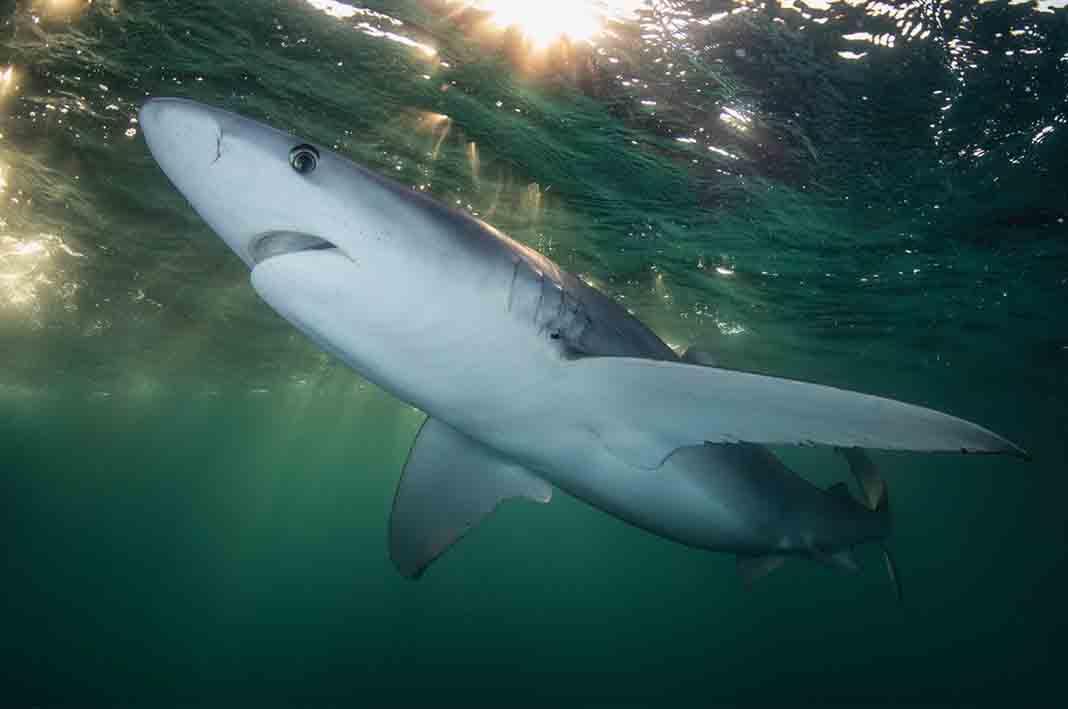
Interestingly enough, Rhode Island has been kind of a blind spot on the map when it comes to tracking sharks in the past. Atlantic Shark Institute aims to change that by shedding light on the shark species that often go unnoticed, and they are one step closer by creating the first ever Rhode Island shark array, which tracks the movements of tagged sharks.
“We felt something lacking,” Romeiro said. “We felt there was a need in Rhode Island to help this along.”
“Animals, sharks included, don’t recognize the lines humans draw on a map,” Moyer said. “These species may frequent New England waters, but they aren’t trapped there.”
Moyer noted that unchecked removal of blues and makos from New England waters means an impact on ecosystems up and down the coast and potentially across the whole Atlantic.
“What we do and how we treat our natural resources can impact ecosystems and the people who depend on them,” he said.
Other scientific projects being supported by Atlantic Shark Institute include studies on thresher, porbeagle and white sharks. No matter which species is the focus, the dedication to discovery is the foundation for the research.
“I hope that my research serves as a means to inspire others to both appreciate these amazing animals and to follow their passions,” Moyer said.
For more information, check out the Atlantic Shark Institute website.



